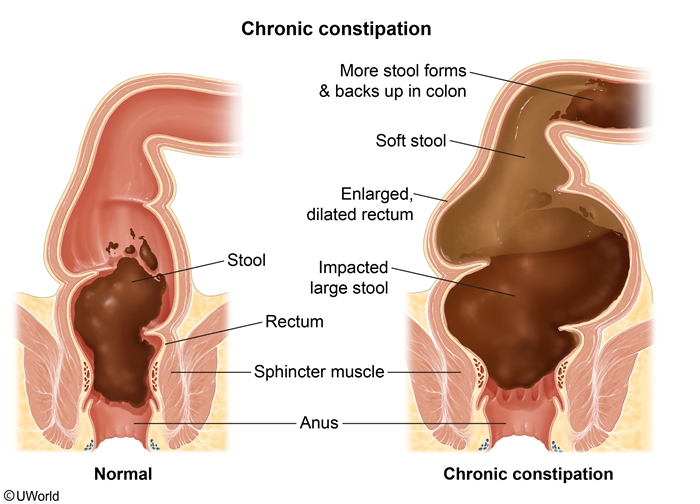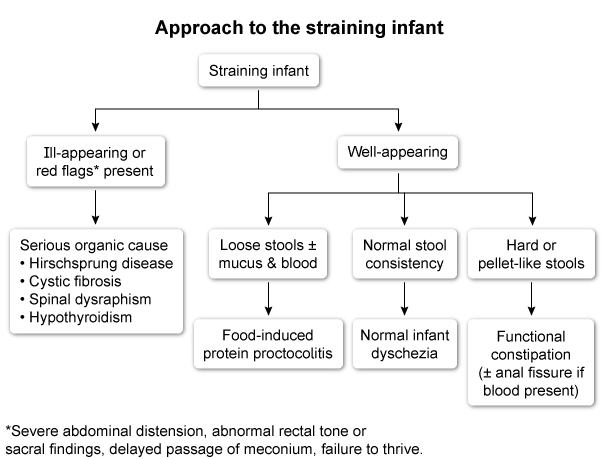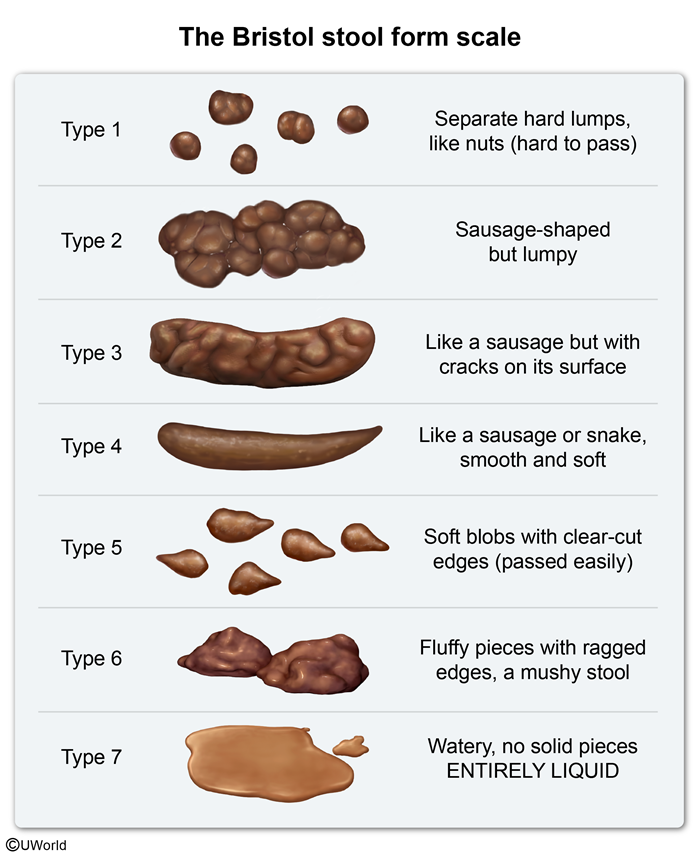Pediatric Functional Constipation
Article Sections
Introduction
Functional constipation is characterized by painful, infrequent, large-caliber or pellet-like stools without an underlying organic (ie, pathologic) cause. Functional constipation is a benign condition and the most common cause of constipation in children (~95% of cases), with peak incidence between age 2 and 5.
Pathogenesis and risk factors
Pediatric functional constipation occurs due to a cycle of voluntary stool withholding, chronic stool retention, and painful defecation, as follows:
- Voluntary stool withholding: Most common during certain developmental milestones, including the introduction of solid foods at age 6-12 months, the start of toilet training at age 2-3, and the start of school at age 4-5. These transitions can alter stool consistency or lead to voluntary stool withholding (to avoid toileting in an unfamiliar environment). The rectosigmoid colon stretches over time to accommodate the withheld stool, and the urge to defecate subsides.
Continue Learning with UWorld
Get the full Pediatric Functional Constipation article plus rich visuals, real-world cases, and in-depth insights from medical experts, all available through the UWorld Medical Library.
Unlock Full AccessFigures

Figure 1

Figure 2

Figure 3
Tables
Table 1
Table 2
Table 3